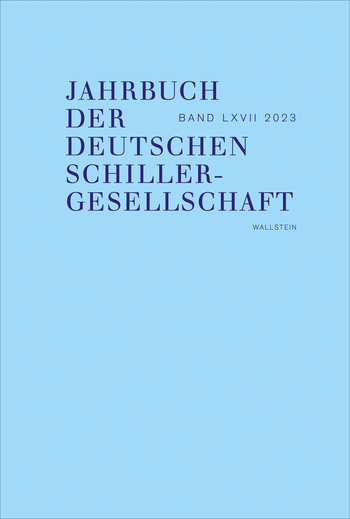

Von Ungereimtheiten der mehrstöckigen Handlungsarchitektur ausgehend, erschließt die Untersuchung das Zusammenspiel der Affekte, mit deren Theorie sich der Karlsschüler beschäftigte, als Basis und Einheit des bühnenwirksamen Arrangements. Von Studienergebnissen zu Schillers Räubern angeregt, die den Einfluss des höfischen Musiktheaters auf das Schauspiel nachweisen, lassen sich Körpersprache, Bewegungen und Kontraste, Stillschweigen und Tränen auch im Don Karlos auf Theateraufführungen am württembergischen Hof zurückführen. Diese Ausdrucksformen bilden im Verbund mit dem rhetorischen Glanz den Nährboden, auf dem sich die ideelle Botschaft entfaltet.
Research on Don Karlos is predominantly concerned with the manifold aspects of content, which are committed to the spirit of the Enlightenment. This essay, on the other hand, concentrates on the dramaturgical design and the theatrical effects that the young poet strings together confidently. Starting from inconsistencies in the multilevel plot architecture, the investigation reveals the interplay of affects, the theory of which the student of the Karlsschule was concerned with, as the basis and unity of the stage-effective arrangement. Inspired by the results of studies on Schiller’s Die Räuber, which demonstrate the influence of courtly musical theater on drama, body language, movements and contrasts, silence and tears can also be traced back in Don Karlos to theatrical performances at the Württemberg court. These forms of expression, together with the rhetorical brilliance, form the breeding ground on which the ideal message unfolds.